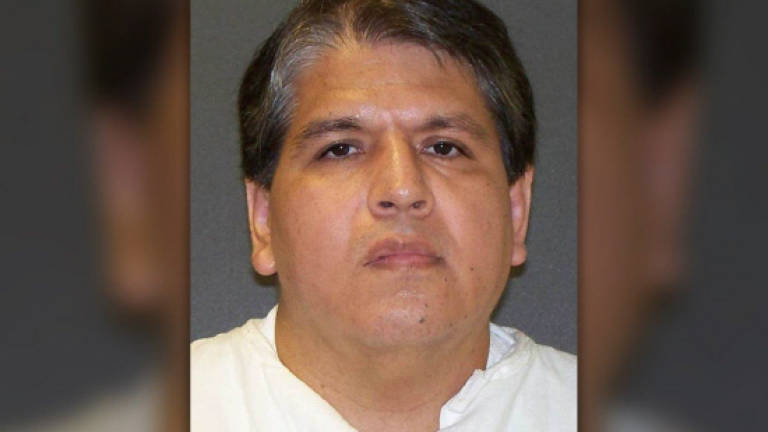Mexico condemns Texas execution of its citizen

WASHINGTON: The US state of Texas on Wednesday executed a Mexican convicted of murdering his teen cousin, sparking condemnation from President Enrique Pena Nieto and adding to tensions between the two countries.
Ruben Cardenas Ramirez, 47, received a lethal injection and was pronounced dead at 10:26 pm (04:26 GMT Thursday, 12.26pm Malaysia time) despite last-minute intervention by his lawyers and concerns raised by the United Nations.
"I will not and cannot apologize for someone else's crime, but, I will be back for justice!" Ramirez said in a written final statement.
He was found guilty of the 1997 kidnap, rape and murder of a 16-year-old cousin, Mayra Laguna.
In his statement, he thanked "every government official" who tried to assist him.
The Mexican president expressed his "strongest condemnation" of the execution on Twitter, saying it violated a ruling by the International Court of Justice.
Mexico abolished the death penalty in 2005 and had asked the United States not to carry out the execution.
The case came alongside tensions over President Donald Trump's plan to build a border wall and make Mexico pay for it as part of his administration's broader efforts to restrict the flow of immigrants and refugees.
Trump has also threatened to scrap a free trade pact between the US, Mexico and Canada if renegotiation doesn't work.
One of Ramirez's lawyers, Greg Kuykendall, had filed in vain a series of last-minute appeals, including to the US Supreme Court, in hopes of a stay of execution.
Mexican officials insist that Cardenas was not promptly given access to an attorney or the consular assistance that is allowed under the 1963 Vienna Convention.
US breached 'human rights'
"For the government of Mexico this is not an issue about culpability or innocence, but about respect for human rights and due process," said Carlos Gonzalez Gutierrez, the Mexican consul general in the Texas capital Austin.
Since the start of the case Cardenas "was denied the right to due process of law, as he was not granted prompt access to consular assistance", he wrote in an opinion piece in the Austin-American Statesman newspaper.
UN human rights experts had also urged the US government not to carry out the execution.
"The US government will have implemented a death penalty without complying with international human rights standards," wrote Agnes Callamard and Elina Steinerte, two UN human rights experts.
"(Cardenas) did not have access to a lawyer for the first 11 days of his detention," they said. "Some of the statements he made during this period were relied on by prosecutors during the trial".
Neither was Cardenas informed of his right to seek consular assistance, the experts said.
In 2004 the UN's International Court of Justice found that the United States had "breached its obligations under international law by not notifying Mexican authorities about the arrest of 51 of its nationals", including Cardenas, "thus denying them the right to consular assistance from their government".
Washington at the time rejected the court's ruling.
For the family of Laguna, the murdered high school sophomore, the execution of Ramirez brought "true peace", her sister said in a statement.
Fifty-four Mexican nationals have been condemned to death in the United States and another 75 are being prosecuted for crimes that could result in a death sentence.
Also on Wednesday in Florida, Patrick Hannon was put to death for a double homicide in 1991. — AFP